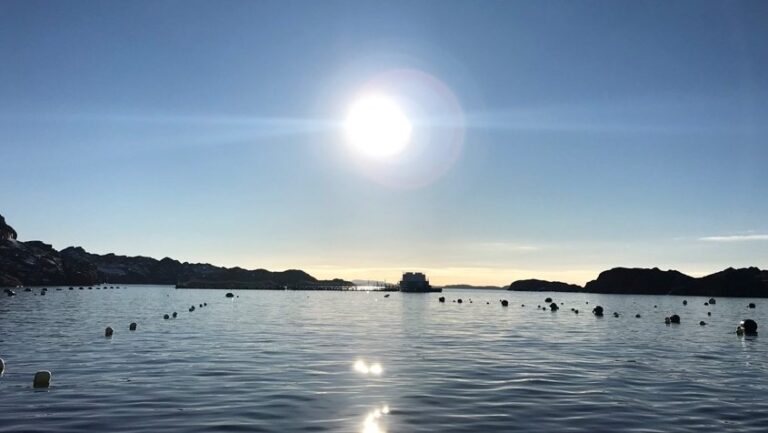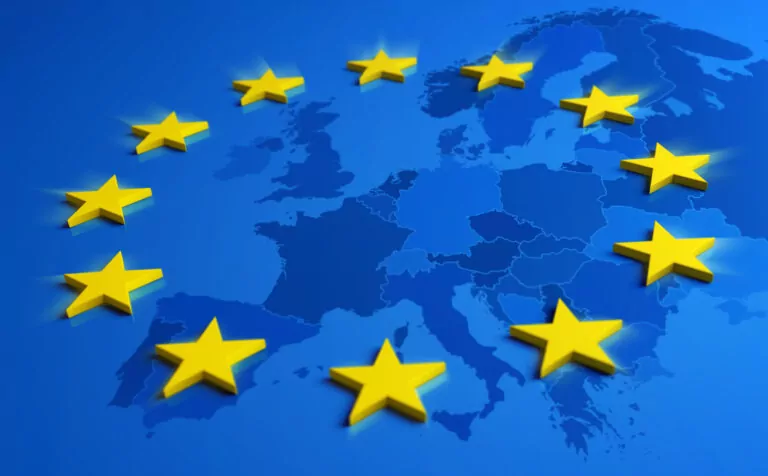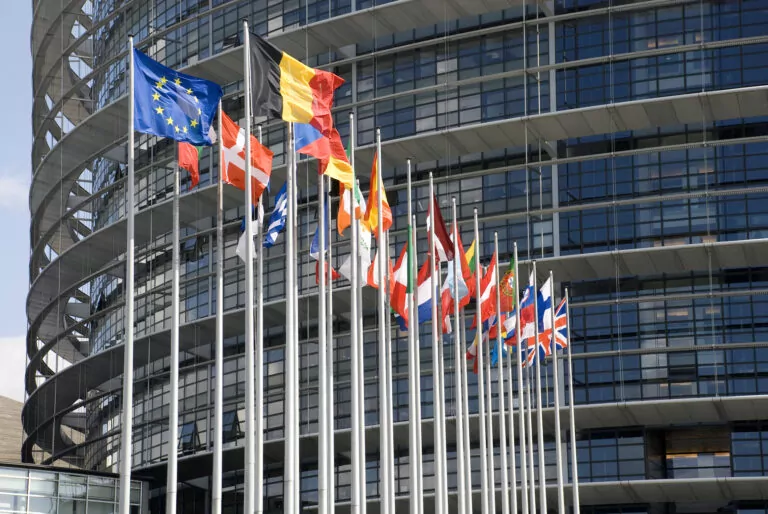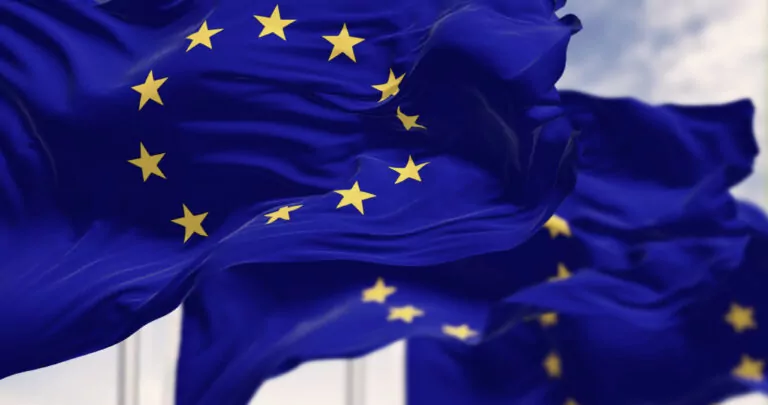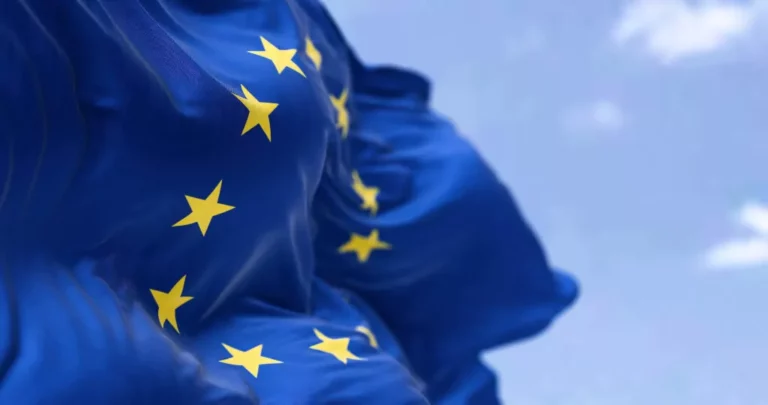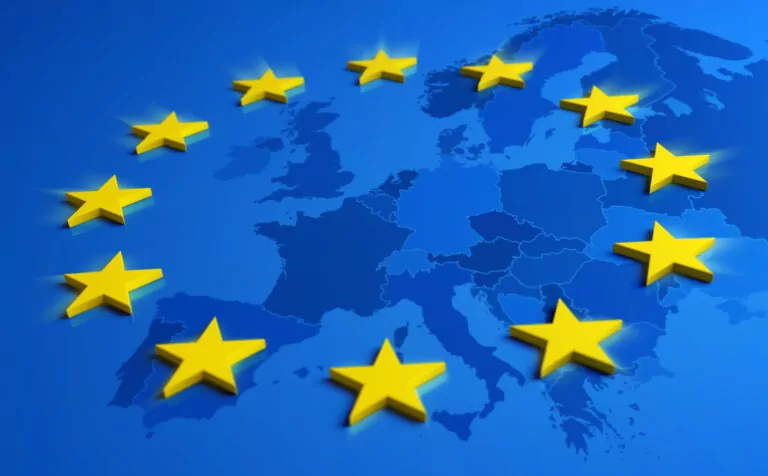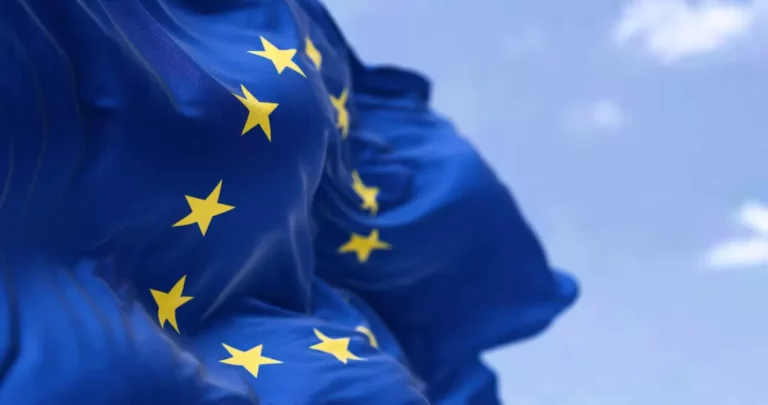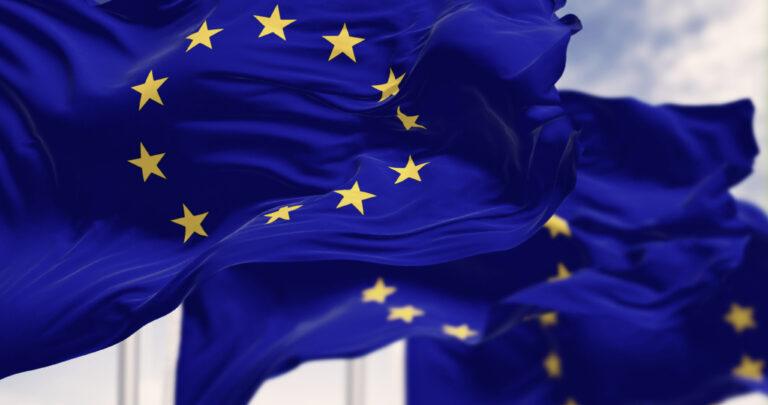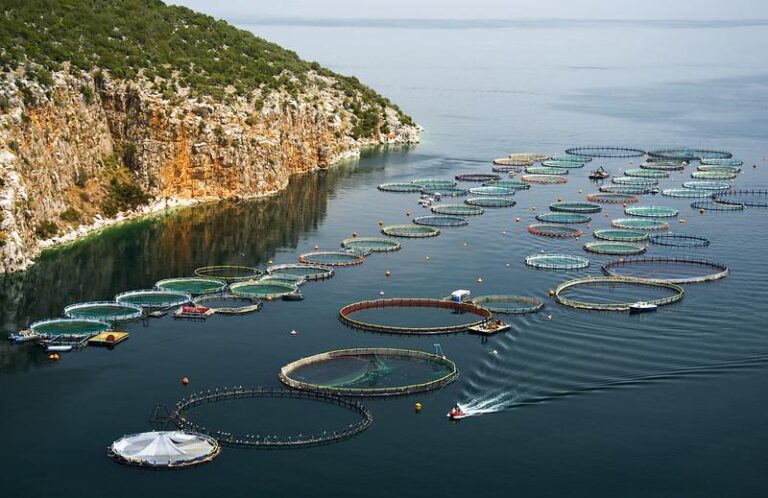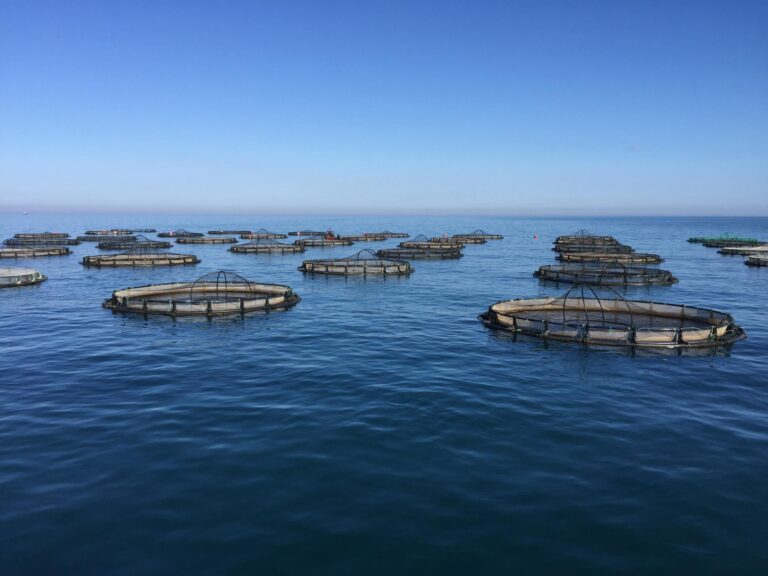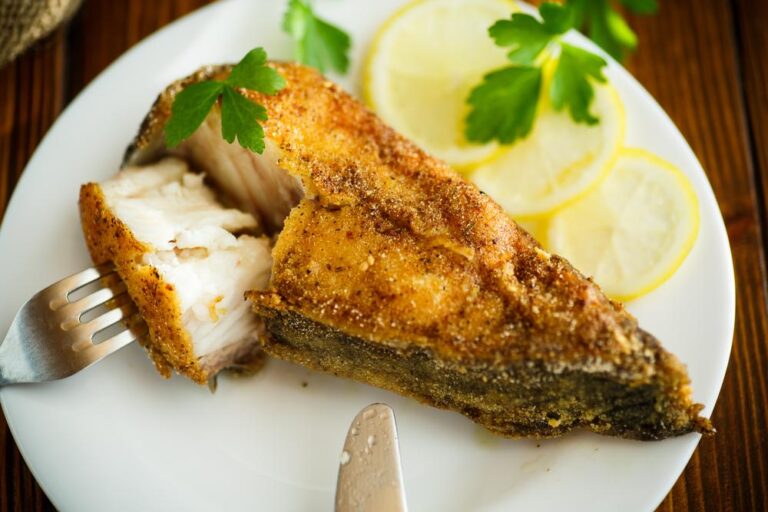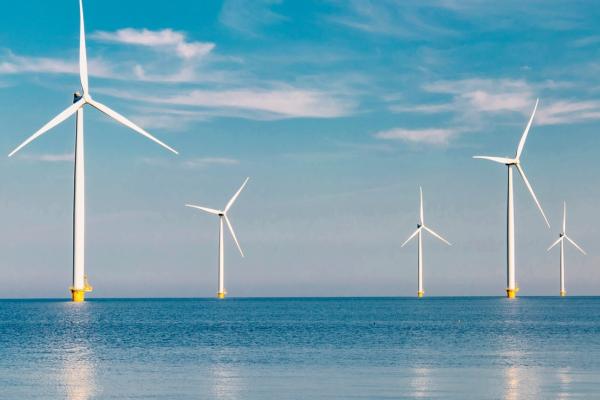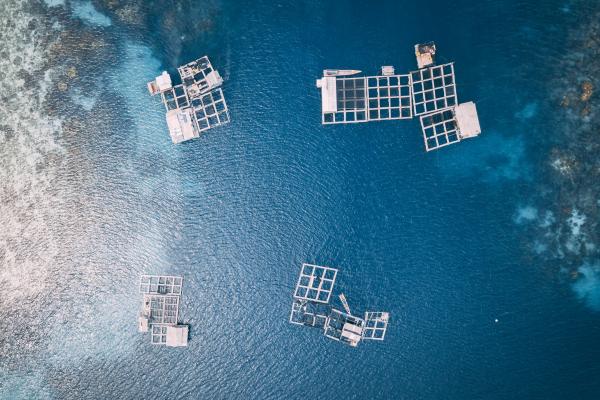Result description
Integrated Multi-Trophic Aquaculture (IMTA) is an environmentally sustainable method of farming seaweed and fish where dissolved nutrients from fish waste provide important nutrition for the growth of the seaweed and vice versa. Preliminary results show improved growth of seaweed near salmon farms. The impact on fish is yet to be determined, but preliminary results show no negative effects and healthier salmon with less sea lice as well as potentially reducing the environmental impact of fish farming. Further studies are necessary to determine how best to attain commercial levels of seaweed production when integrated with salmon farms, and to determine the direct effect of seaweed growth on the fish themselves, including taste test.
IMTA systems were upscaled to commercial production at three locations on the west coast of Norway. IMTA systems can play a key role in ensuring the growing aquaculture industry remains sustainable and environmentally positive. Configuration of IMTA sites must be adapted to site features. Max utilization of dissolved waste from fish production to firtilize seaweed production is obtained by placing seaweed rafts as close to the fish as possible. Good light condition and flow through are advantageous to obtain good productivity of seaweed. At exposed sites, equipment and procedures to cope with the conditions are needed. No negative effects were seen on fish production, enviromental condition or biological diversity. Nor were significant direct effects of nearby seaweed on fish health and welfare observed. Nutritional value, sensorial attributes and contaminants like PBDEs and heavy metals were similar for non-IMTA and IMTA produced salmon. In seaweed, content of PBDEs was below detection limit, and cadmium, lead, mercury and inorganic arsenic below estimated limits for consumption. Seaweed harvest in April-May seem optimal.
Addressing target audiences and expressing needs
- To raise awareness and possibly influence policy
- Grants and Subsidies
- Other blended financing
- Business partners – SMEs, Entrepreneurs, Large Corporations
- Marketing Mentoring or Coaching
- Technology Transfer Expertise
- Expanding to more markets /finding new customers
- Help in technical expertise
- Use of research Infrastructure
- Collaboration
- Fellowship to advance my/our research
We need
- Better production technology solutions for seaweed production
- More R&D on quality and growth
- Improved knowledge on other species to cover other seasons, especially in summer or fall
- Market development
- More knowledge on harvesting logistics, prepossessing and quality
- Further support to upscale seaweed production at sites and to assess the total environmental impact and effect of seaweed growth on fish
- Public or private funding institutions
- EU and Member State Policy-makers
- Other Actors who can help us fulfil our market potential
- Research and Technology Organisations
- Academia/ Universities
- Private Investors
R&D, Technology and Innovation aspects
Salmon and seaweed are produced in IMTA at commercial scale. Still further development are needed with respect to processing and markets.
Salmon and seaweed are produced and harvested according to production plans. Yeild of seaweed may vary from season to season.
Result submitted to Horizon Results Platform by MOREFORSKING AS

